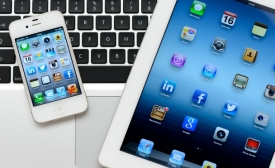digital diplomacy and new tech
Facebook is among companies teaming up with the South American nation on the program through its Internet.org non-profit organization, set to launch at the summit. Internet.org aims to bring connectivity to everybody, particularly to low-income communities that have traditionally been deprived of the technology.
The US government has used hip-hop as an unlikely foreign policy tool to reach youth and promote democracy abroad. In the mid-2000s, as the United States faced ongoing challenges in the Middle East, the State Department launched hip-hop tours and workshops throughout the Muslim world.
Data show that the number of Internet users in Indonesia reached 72.5 million this year, equal to some 29 percent of the population. The government, Hodiny said, should play a role in bridging the information gap; it should help as many people as possible get connected to the Internet because knowledge improves lives.
35 well-coiffed foreign ambassadors on formal state business in the US were sitting in the Khan Academy kitchen to learn about the educational nonprofit that has become a global name. Standing amid a crowd of laid-back software engineers and employees in casual garb, the foreign visitors were immersed in a different culture in more ways than one.

Global communications scholar James Pamment has published a new article that unpacks the communication theories and practices behind the international advocacy Campaign to End Sexual Violence in Conflict.

This panel was comprised of representatives from the foreign ministries of Canada, Israel, Mexico and the U.S. Department of State and shared insights from their respective recent advocacy efforts. Particular focus was placed on the exploration of how best to merge traditional and digital campaigns and how to determine success through the use of metrics.
Panel discussion from 6:30pm-8:00pm; reception immediately following.

TODAY: Join us for a digital diplomacy discussion with noted scholar Taylor Owen







